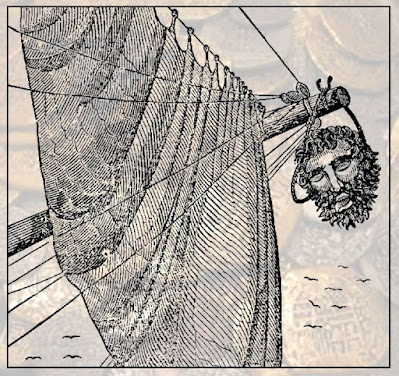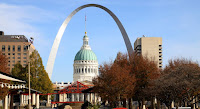October 29, 2021
 |
| The Bro and CJ, heading west |
Today’s QB will run longer than normal because it’s time to wrap up October with a look at “this day.”
On October 1, 1890, an act of Congress created Yosemite National Park, home of such natural wonders as Half Dome and the giant sequoia trees. Environmental trailblazer John Muir and his colleagues campaigned for the congressional action, which was signed into law by President Benjamin Harrison and paved the way for generations of hikers, campers and nature lovers, along with countless “Don’t Feed the Bears” signs.
On October 2, 1965, a team of scientists invented Gatorade, a sports drink to quench thirst, in a University of Florida lab. The name Gatorade is derived from the nickname of the university’s sports teams. Eventually, the drink became a phenomenon and made its inventors wealthy.
At the end of a sensational trial, on October 3, 1995, former football star O.J. Simpson was acquitted of the brutal 1994 double murder of his estranged wife, Nicole Brown Simpson, and her friend, Ronald Goldman. In the epic 252-day trial, Simpson’s “dream team” of lawyers employed creative and controversial methods to convince jurors that Simpson’s guilt had not been proved “beyond a reasonable doubt,” thus surmounting what the prosecution called a “mountain of evidence” implicating him as the murderer.
The Soviet Union inaugurated the “Space Age” with its launch of Sputnik, the world’s first artificial satellite, on October 4, 1957. The spacecraft was named Sputnik after the Russian word for “fellow traveler.” Sputnik had a diameter of 22 inches and weighed 184 pounds and circled Earth once every hour and 36 minutes.
Georgia Tech defeated Cumberland University, 220-0, on October 7, 1916, in the most lopsided game in college football history. Coached by John Heisman, later namesake of college football’s most famous trophy, Georgia Tech took a 63-0 lead in the first quarter at Grant Field in Atlanta. “I think one of our best plays of the game was when one of our players got the ball on a pitchout and he lost only 10 yards,” Ed Haysler Poague, who played for Cumberland, recalled decades later.
Don Larsen of the New York Yankees threw the only perfect game in World Series history on October 8, 1956, for a New York 2-0 win in Game 5 over the Brooklyn Dodgers. The Yankees won the World Series in seven games. Over two hours, six minutes and 97 pitches, Larsen retired all 27 batters. On a 1-2 pitch, he struck out Dale Mitchell to end the game and catcher Yogi Berra raced toward Larsen, jumping into his arms.
Less than a year before Richard M. Nixon’s resignation as president of the United States, Spiro Agnew became the first U.S. vice president to resign in disgrace. The same day, October 10, 1973, he pleaded no contest to a charge of federal income tax evasion in exchange for the dropping of charges of political corruption. He was subsequently fined $10,000, sentenced to three years probation, and disbarred.
Apollo 7, the first manned Apollo mission, was launched on October 11, 1968, with astronauts Walter M. Schirra, Jr.; Donn F. Eisele; and Walter Cunningham aboard. Under the command of Schirra, the crew of Apollo 7 conducted an 11-day orbit of Earth, during which the crew transmitted the first live television broadcasts from orbit.
The cornerstone was laid on October 13, 1792, for a presidential residence in the newly designated capital city of Washington, D.C. In 1800, President John Adams became the first president to reside in the executive mansion, which soon became known as the “White House” because its white-gray Virginia freestone contrasted strikingly with the red brick of nearby buildings.
For years, many aviators believed that it was not possible to fly faster than the speed of sound, theorizing that transonic drag rise would tear any aircraft apart. All that changed on October 14, 1947, when U.S. Air Force Captain Chuck Yeager flew an X-1 rocket plane over Rogers Dry Lake in Southern California. The X-1 was lifted to an altitude of 25,000 feet by a B-29 aircraft and then released through the bomb bay, rocketing to 40,000 feet, exceeding 662 miles per hour. Because of the secrecy of the project, Yeager’s achievement was not announced until June 1948.

On October 15, 1989, Los Angeles King Wayne Gretzky broke Gordie Howe’s points record (1,850) in the final period of a game against the Edmonton Oilers. Gretzky’s record-setting goal tied the game; in overtime he scored another, and the Kings won 5-4. By the time Gretzky retired at the end of the 1998-99 season, he held or shared 61 NHL records. In all, he scored 894 goals and tallied 1,963 assists for 2,857 points in 1,487 games.
Gangster Al Capone was sentenced to 11 years in prison for tax evasion on October 17, 1931, and fined $80,000. Capone was at the top of the F.B.I.’s “Most Wanted,” but he avoided long stints in jail until 1931 by bribing city officials, intimidating witnesses and maintaining various hideouts. He became Chicago’s crime kingpin by wiping out his competitors through a series of gangland battles and slayings, including the infamous St. Valentine’s Day Massacre in 1929, when Capone’s men gunned down seven rivals.
On October 18, 1867, the U.S. formally took possession of Alaska after purchasing the territory from Russia for $7.2 million, or less than two cents an acre. The Alaska purchase comprised 586,412 square miles, about twice the size of Texas, and was championed by William Henry Seward, secretary of state under President Andrew Johnson.
One month after Napoleon Bonaparte’s massive invading force entered a burning and deserted Moscow, the starving French army was forced on October 19, 1812, to begin a hasty retreat out of Russia. On December 8 Napoleon left what remained of his army to return to Paris with a few cohorts. Six days later, the Grande Armée finally escaped Russia, having suffered a loss of more than 400,000 men during the disastrous invasion.
On October 20, 1968, 21-year-old Oregonian Dick Fosbury won gold – and set an Olympic record – when he high-jumped 7 feet 4 1/4 inches at the Mexico City Games. It was the first American victory in the event since 1956. It was also the international debut of Fosbury’s unique jumping style, known as the “Fosbury Flop.”
A landslide of coal waste crashed into a small Welsh mining village, on the morning of October 21, 1966, killing 116 children and 28 adults. Hitting a school, the accident wiped out half the town’s youth. The Aberfan disaster became one of the UK’s worst coal mining accidents. The landslide sent 140,000 cubic yards of coal waste in a tidal wave 40-feet high hurtling down the mountainside destroying farmhouses, cottages, houses and part of the neighboring County Secondary School.

In a televised speech, President John F. Kennedy announced on October 22, 1962, that U.S. spy planes had discovered Soviet missile bases in Cuba. These missile sites housed medium-range missiles capable of striking a number of major cities in the United States, including Washington, D.C. Kennedy announced that he was ordering a naval “quarantine” of Cuba and explained that the United States would not tolerate the existence of the missile sites currently in place. The president made it clear that America would not stop short of military action to end what he called a “clandestine, reckless and provocative threat to world peace.”

On October 24, 1901, a 63-year-old schoolteacher named Annie Edson Taylor became the first person to successfully take the plunge over Niagara Falls in a barrel. Strapped for cash and seeking fame, Taylor came up with the perfect attention-getting stunt: She would go over Niagara Falls in a barrel. After a brief flurry of photo-ops and speaking engagements, Taylor’s fame cooled, and she was unable to make the fortune for which she had hoped. Between 1901 and 1995, 15 people went over the falls; 10 of them survived. No matter the method, going over Niagara Falls is illegal, and survivors face charges and stiff fines on either side of the border.

The Earp brothers faced off against the Clanton-McLaury gang in a legendary shootout at the O.K. Corral in Tombstone, Arizona on October 26, 1881. The famous gunfight that ensued lasted 30 seconds, and around 30 shots were fired. When the dust cleared, Billy Clanton and the McLaury brothers were dead, and Virgil and Morgan Earp and Doc Holliday were wounded. Ike Clanton and Billy Claiborne had run for the hills.
On October 27, 2006, the last Ford Taurus rolled off the assembly line in Hapeville, Georgia. The keys to the silver car went to 85-year-old Truett Cathy, the founder of the Chick-fil-A fast-food franchise, who took it straight to his company’s headquarters in Atlanta and added it to an elaborate display that included 19 other cars, including one of the earliest Fords. “I do have this disease of collecting cars,” Cathy told a reporter.
On October 28, 1965, construction was completed on the Gateway Arch, a spectacular 630-foot-high parabola of stainless steel marking the Jefferson National Expansion Memorial on the waterfront of St. Louis, Missouri. The Gateway Arch was erected to commemorate President Thomas Jefferson’s Louisiana Purchase of 1803 and to celebrate St. Louis’ central role in the rapid westward expansion that followed.

“The War of the Worlds,” Orson Welles’s realistic radio dramatization of a Martian invasion of Earth was broadcast on the radio on October 30, 1938. Sunday evening in 1938 was prime-time in the golden age of radio, and millions of Americans had their radios turned on. But most of these Americans were listening to ventriloquist Edgar Bergen and his dummy “Charlie McCarthy” on NBC and only turned to CBS at 8:12 p.m. after the comedy sketch ended and a little-known singer went on. By then, the story of the Martian invasion was well underway. The radio play was extremely realistic, with Welles employing sophisticated sound effects and his actors doing an excellent job portraying terrified announcers and other characters. An announcer reported that widespread panic had broken out in the vicinity of the landing sites, with thousands desperately trying to flee.

On October 31, 1517, priest and scholar Martin Luther approached the door of the Castle Church in Wittenberg, Germany, and nailed a piece of paper to it containing the 95 revolutionary opinions that would begin the Protestant Reformation. In his theses, Luther condemned the excesses and corruption of the Roman Catholic Church, especially the papal practice of asking payment – called “indulgences” – for the forgiveness of sins.
👉 Today’s close is from Praying with the Psalms, by Eugene H. Peterson.
“Bless the Lord, O my soul; And all that is within me, bless His holy name! Bless the Lord, O my soul, And forget not all His benefits: Who forgives all your iniquities ... As far as the east is from the west, So far has He removed our transgressions from us” (Psalms 103:1-3, 12).
The experience of forgiveness provokes the activity of praise. In forgiveness our sins are personally confronted, not impersonally condemned. We experience God’s severity, but even more his grace.
Prayer: Merciful Father, I used to try to hide my true self from you, assuming that if you knew all about me you would necessarily condemn me. Now I know your knowledge is gracious and that deception is futile. Come to me with just the right mixture of severity and kindness. Judge me and save me, both at the same time, in Jesus Christ. Amen.
-30-

























































